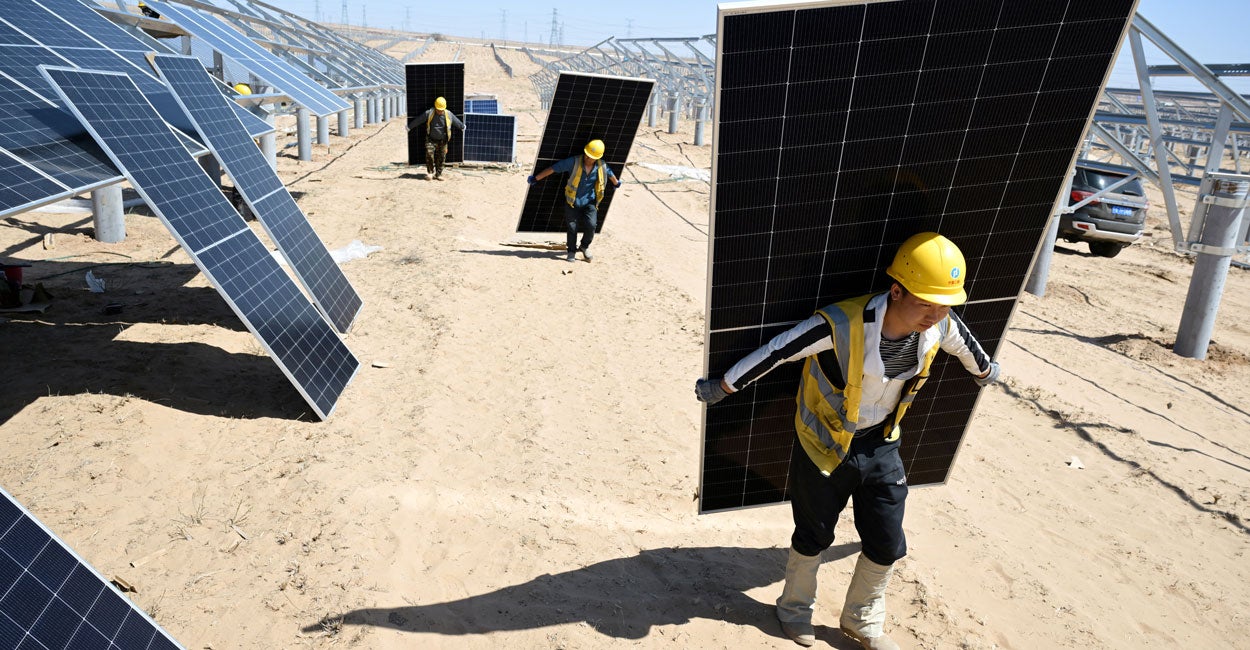How Big Tech hijacked the classroom — and our kids are paying the price


New York has just joined more than a dozen states in prohibiting the use of cell phones or personal electronic devices during the school day — a move that should prompt us to honestly evaluate how technology, in all its forms, is reshaping education.
The arguments in favor of cellphone bans are persuasive.
We’ve allowed tech companies to dictate classroom norms — and our students are paying the price.
A 2023 meta-analysis across 14 countries found that student phone use significantly harms educational outcomes, including test scores, GPA, and self-assessed academic performance. Both educators and students in that study recognized the issue: Phones were seen not just as distractions, but as threats to student safety — enabling cyberbullying, inappropriate photo-sharing, and constant social media interference.
This reckoning with smartphones is overdue and welcomed — but it needs to go farther.
It’s time to reconsider the role of technology in the classroom more broadly. Because let’s be honest: Technology hasn’t delivered on its educational promises.
The Big Tech lie
The widespread deployment of laptops and digital tools as pedagogical instruments wasn’t driven by educators, parents, or students. It was pushed by Silicon Valley.
Big Tech companies like Google and Apple aggressively marketed their products as educational tools, positioning themselves as essential partners in a tech-forward future. By 2020, Google was raking in an estimated $200 million annually from school-issued Chromebooks.
We were sold a lie.
We were told that giving every student a laptop would facilitate personalized learning, student engagement through interactive platforms, improved digital literacy, and preparation for a 21st-century workforce.
What we got instead was distraction, degradation of core skills, and exposure to risks no school administrator can fully control.
The data speaks loudly
There is no proof by any available metric that educational outcomes have improved as a result of making laptops part of the learning environment.
On the contrary, a report from the National Education Policy Center, a nonpartisan research group at the University of Colorado at Boulder, found the rapid adoption of the mostly proprietary technology in education to be rife with "questionable educational assumptions, self-interested advocacy by the technology industry, serious threats to student privacy, and a lack of research support."
Students routinely bypass filters to access gaming, entertainment, and social media during class — something any parent who has had to keep her student on task while the student is supposed to be doing homework could have told you would happen.
Kids are exceptionally talented at finding — and sharing with their peers — work-arounds to circumvent content filters and monitoring software. Schools have profoundly failed to protect children from explicit material.
A survey from Common Sense Media found that at least one in four teens had seen pornography while at school; more than two in five (44%) respondents who had seen pornography during the school day said they had seen it on a school-issued device; and reported exposure on school-issued devices was highest among 13- to 14-year-old teens.
So-called "educational" sites like coolmathgames.com — often promoted by schools — can include links that lead students into inappropriate digital territory.
But the deeper concern is what this tech dependence is doing to how — and whether — students actually learn.
The Big Tech crutch
Note-taking by hand, once a cornerstone of learning, is being replaced by typed notes — or worse, voice-to-text digital transcription. But typing notes verbatim doesn't force students to process or internalize the information. That mental work — summarizing, interpreting, organizing — is where learning actually happens. Without it, comprehension suffers.
Critical thinking and writing skills are declining. Why bother learning how to spell, rules of grammar, or how to construct a cogent, thoughtful sentence when you can have autofill, predictive text, spellcheck, Grammarly, and ChatGPT do all the work for you?
The rise of gamified learning is rewiring the rewards systems of a child’s brain. Tech advocates claim that video tutorials and interactive games increase engagement. That may be true. But engagement is not the same as learning.
Students are conditioned, like Pavlov’s dogs, to seek the cheap rewards of flashing lights and electronic fireworks, bells, and whistles for getting an answer right — rather than the deeper reward of meeting a challenge and mastering it.
But just as kids awarded “participation trophies” know that the award doesn’t really mean anything, they also find the digital “You won!” displays, ultimately, unfulfilling. Concepts that are easily learned are also easily forgotten. And instead of encouraging deep thinking, “gamified” education is training kids to expect mastery without effort.
They come to expect learning to be entertaining, and when it’s not, they disengage.
The real goal of education
Generations of educators understood that slow reading allows students to deeply engage with texts and absorb their meaning. Lingering over books allows students to reflect on ideas rather than rushing through content. It fosters comprehension, retention, and the ability to make meaningful connections with the material.
This, rather than merely passing a test, should be the objective of education.
Technology has a role in education. But its current dominance has outpaced evidence of its benefits. We’ve allowed tech companies to dictate classroom norms — and our students are paying the price.
If banning phones is a necessary first step, then let it be the start — not the end — of a much larger reckoning, one that reclaims the classroom as a place of focus, rigor, and real learning.
Originally Published at Daily Wire, Daily Signal, or The Blaze
What's Your Reaction?
 Like
0
Like
0
 Dislike
0
Dislike
0
 Love
0
Love
0
 Funny
0
Funny
0
 Angry
0
Angry
0
 Sad
0
Sad
0
 Wow
0
Wow
0











































































